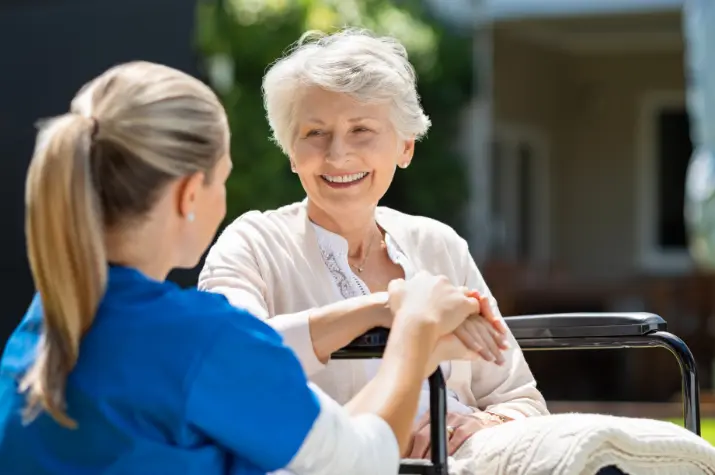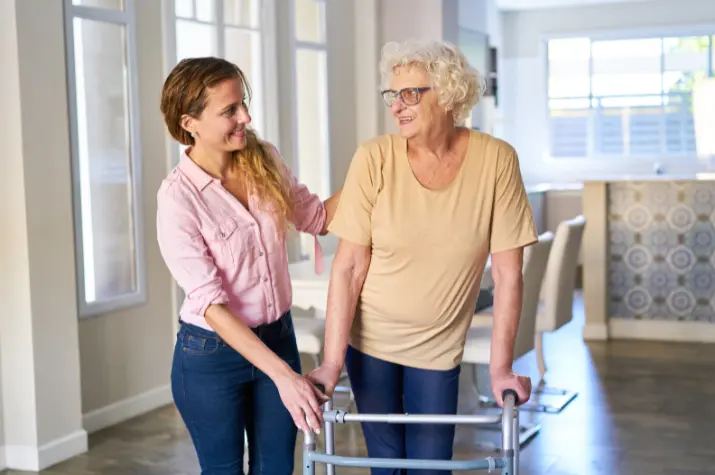
The American population has entered a significant stage in its existence, the shift of influence and responsibility from one of the most influential populations to their descendants.
Though this is no new process within the human experience, nor is it novel for any particular people group on the planet, there are ways in which Americans tend to approach elderly care somewhat differently from other populations and cultures on the planet.
Where many people groups have, for generations, revered and respected the contributions of elders to such a degree that they go out of their way to continually celebrate and honor the wisdom of elderly individuals.
This is done through a combination of behaviors and social habits, but what appears to be consistent among these people groups is that the elderly are regularly invited and encouraged to participate in the day-to-day lives of their families.
In contrast, Americans have taken a different route which, arguably, seeks to protect and prolong the livelihood of elderly adults by entrusting their care to trained healthcare professionals rather than family members. While this is not with every case, many families eventually end up encouraging and relocating their loved ones to retirement homes.
There are plenty of obvious reasons for this such as more potential for peer engagement, safe spaces, and regular access to medical attention. Still, overall, that type of combination of regular services requires a space other than the homes of close kin.
In the history of human healthcare, this type of care is a newer approach to geriatric patients, and as with every system or environment, there are pros and cons to be considered.
Regardless of where or how the elderly are being taken care of, however, there are a few approaches that are not just helpful in sound care for older adults, but essential to seeing that the greatest care is consistently made available to every individual. Of those few essential elements, one that is perhaps most readily needed is the attribute of patience.
The Importance of Practicing Patience When Caring for an Elderly Loved One at Home or in a Nursing Home
With that in mind, here are some reasons and examples of the importance of practicing patience when caring for an elderly loved one at home or in a nursing home.
The Importance of Patience
Patience is a necessary and helpful virtue at any age or in any situation in life, but that is especially so in the case of caring for young children and, somewhat ironically, in elderly care.
Being that many people will come to the point in their lives where someone they know, family member or otherwise, begins the process of aging that is marked by a steady decline in mental and physical functioning, learning to practice the art of patience is important.
To effectively care for the elderly, much patience will be needed, and with that comes insights of compassion and understanding.
Respect for Both Parties

Patience can be a challenging practice in many situations, but that can be much harder to maintain when multiple, uncontrollable factors arise as the aging process continues.
Exempting those persons who are experienced in elderly care, most people will only come face to face with elderly care when that occurs in their own families.
Regardless of who is being taken care of or who is doing the caretaking, there are a few factors that are common to aging that may require greater examples and tests of patience.
No matter how that care is being conducted or who is doing the caring it is important not only from a point of efficacy, but of love, respect, and understanding— not just for the elderly but for the caregiver.
Healthy Boundaries
Without an understanding of when and how to best demonstrate patience, there arises a greater risk for misunderstandings that can lead to anger, resentment, accidents, and even physical or emotional abuse.
It should be noted, however, that there is certainly a point in time when both the one being taken care of, and the caretaker should recognize that their boundaries or limits have been reached.
If that occurs, and a situation continues to escalate, then it is best for one or either party to leave the situation and seek the assistance of another person. In this way, again, both parties are cared for and the risk of married relationships is lessened.
Challenges with Memory
It is an unfortunately common malady amongst the elderly population that memory can drastically decline. Though this takes many forms, some of the more popular terms in memory care for such a diagnosis are those of Alzheimer’s and Dementia. It is typical in these instances that the forgetfulness inherent in such struggles will create situations that demand patience.
Sadly, while that would regularly be required of both parties, it will more often only be feasible with the caregiver. These emotionally charged situations will undoubtedly occur, and thus patience is ever more required.
In this way, the consistent demonstration of patience will lead to greater compassion toward the one in need of care and a sense of accomplishment and joy for the caregiver when that added patience and compassion is rewarded.
About The Author:
Stacey Smith is a freelance health writer. She is passionate about writing about women’s health, dental health, diabetes, endocrinology, and nutrition and provides in-depth features on the latest health news for medical clinics and health magazines.




